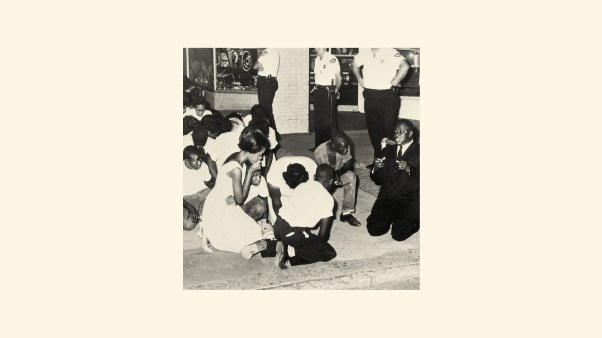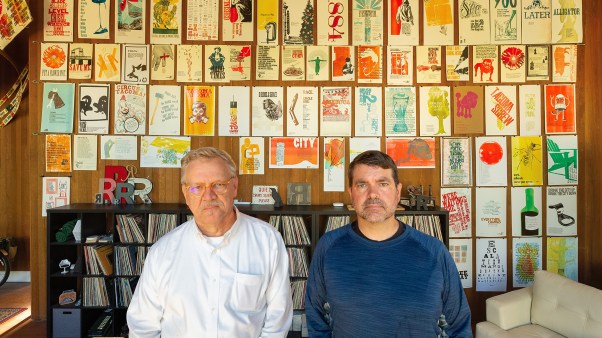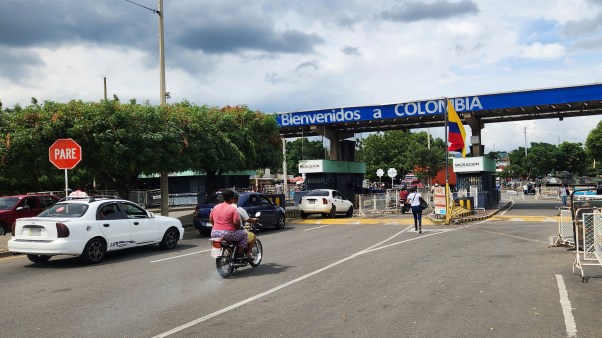When Osama Sawarih arrived at one of Gaza’s new aid-distribution centers around 5 a.m. on Sunday, he encountered a scene he said he’ll never forget. A crowd had been gathering in the southern city of Rafah for hours, many with empty bellies after a 12-week Israeli blockade led to severe food shortages. Sawarih’s stock of food was running dangerously low, and his kids, who range from ages 2 to 17, often eat only flatbread and rocket lettuce for dinner. Like many others in Gaza, his entire family was beginning to show signs of malnutrition.
Some people did not comply with instructions from the Israel Defense Forces (IDF) and attempted to bypass the line, he said. Then, snipers in vehicles and quadcopter drones fired at the crowd, said Sawarih, a Muslim-background believer who came to faith in Christ a decade ago. (Christianity Today agreed not to use his real name, as converts to Christianity face danger in Gaza.) Some people fled while others dropped to the ground to avoid the incoming bullets. Sawarih stayed low and covered his head with his hands until the shooting stopped 40 minutes later.
As the distribution began, he saw frantic people jumping over the bodies of people who died from gunfire, and he heard injured people screaming in pain. Some of the injured had relatives who could transport them to hospitals, but others had no one to help, he noted. In desperation to secure food, no one tried removing bodies from the streets, he said.
“I will not repeat this visit, not out of fear but because human dignity was trampled underfoot,” Sawarih said.
The Hamas-run Gaza Health Ministry said 31 people died and 170 others were wounded. Israel claims it is “unaware of injuries caused by IDF troops’ fire” in Rafah.
The IDF published a video of masked Palestinian gunmen throwing stones and firing at Gazans seeking aid in Khan Younis, a village five miles away from Rafah, on Sunday. “Hamas is a murderous and brutal terror organization that starves the residents of Gaza,” the IDF said.
Sawarih agrees with the IDF’s characterization of Hamas and has confirmed Israeli claims of Hamas theft. Yet he disagrees with Israel’s account of the events in Rafah. He saw the dead and injured, and he’s confident the gunfire came from Israeli drones and snipers. He learned to identify the distinct sound of drone gunfire when his family lived in a school used as a shelter and he saw the drones and sniper vehicles.
Sawarih knew one of the aid seekers who died—a teacher named Maha Qudaih. “Maha was an example of a patient and hardworking teacher, but she fell victim to hunger, injustice, and oppression,” he said.
The US- and Israel-backed initiative is an attempt to restore delivery of vital food and medicine to Gaza while preventing Hamas from stealing the aid. The United Nations has downplayed the extent of Hamas’s theft and boycotted the plan, warning of displacement and Israeli manipulation of aid.
The Rafah distribution site is one of four in southern Gaza that launched last week as part of the recently created Gaza Humanitarian Foundation (GHF). US security contractors are overseeing the food distributions while the IDF secures the perimeter.
GHF claims it distributed 4.7 million meals at multiple distribution sites throughout the past week and denied the existence of any major incidents. Yet the organization Doctors Without Borders said its teams treated patients with gunshot wounds at Nasser Hospital in Khan Younis who testified to Israeli drone, sniper, and helicopter fire in Rafah “from all sides.”
Khalil Sayegh, a Palestinian Christian and political analyst who lived in Gaza until 2009, said everyone he had talked to there confirmed the Israeli military had attacked those waiting for food.
The Times of Israel was among several news outlets that reported on the chaos plaguing the new distribution sites and included eyewitness accounts of IDF troops opening fire.
The report noted “giant crowds of tens of thousands of people [that] have overwhelmed the facilities, sometimes breaking fences to reach food boxes that they say quickly ran out.” Sawarih said the mechanisms for distribution did not account for the sheer number of people who flooded the sites and the shortfall of food. Many Gazans left empty-handed.
Despite the dangers in Rafah, Sawarih made it to the front of the line and took home ten pounds of lentils, three cans of beans, two pounds of flour, and one pound of pasta. He also found two hedgehogs outside his family’s tent and added them to Monday’s dinner—a feast according to wartime Gaza’s standards.
After dinner, the ground shook from an Israeli airstrike nearby. He could see black smoke even though the sun had already set. “God takes care of us,” Sawarih said. “I hope this war and suffering will soon end.”
Editor’s note: This report was updated to clarify Sawarih’s account.












